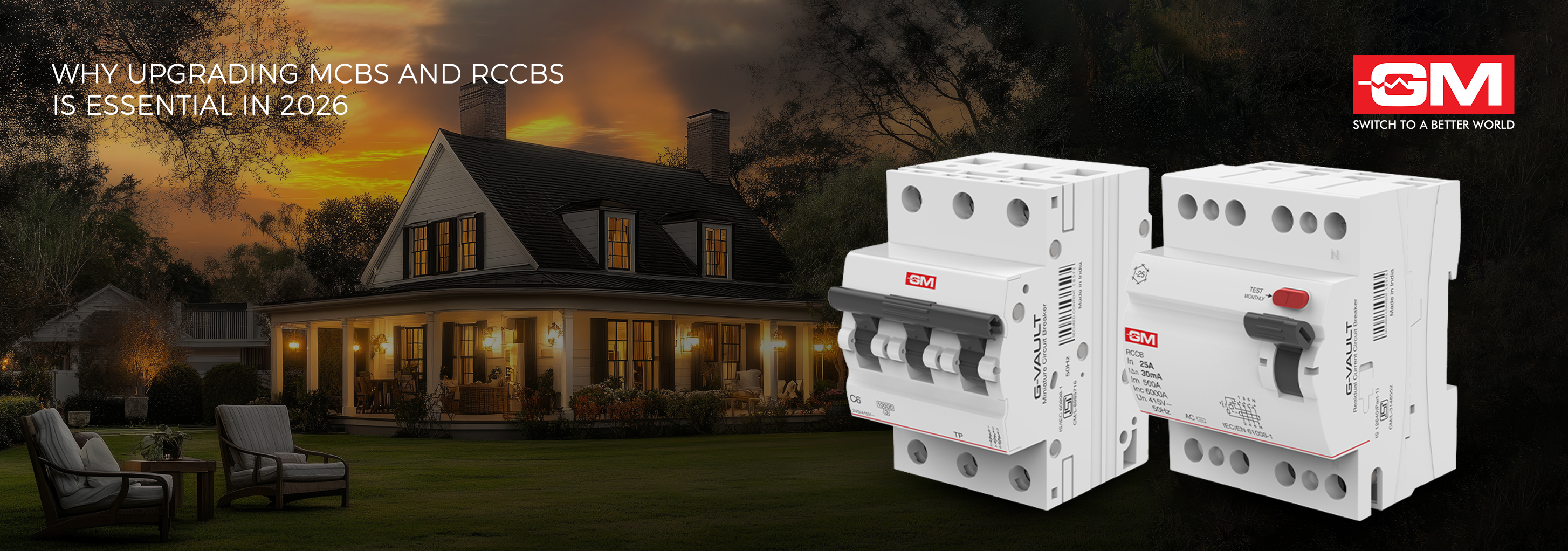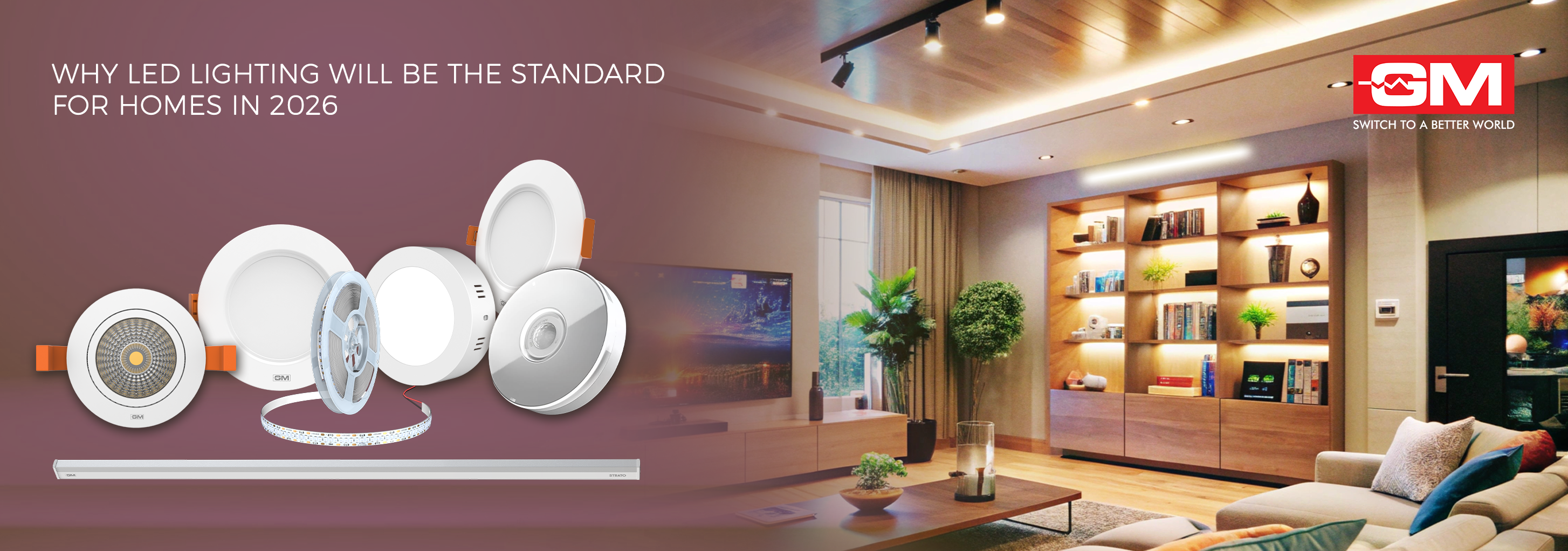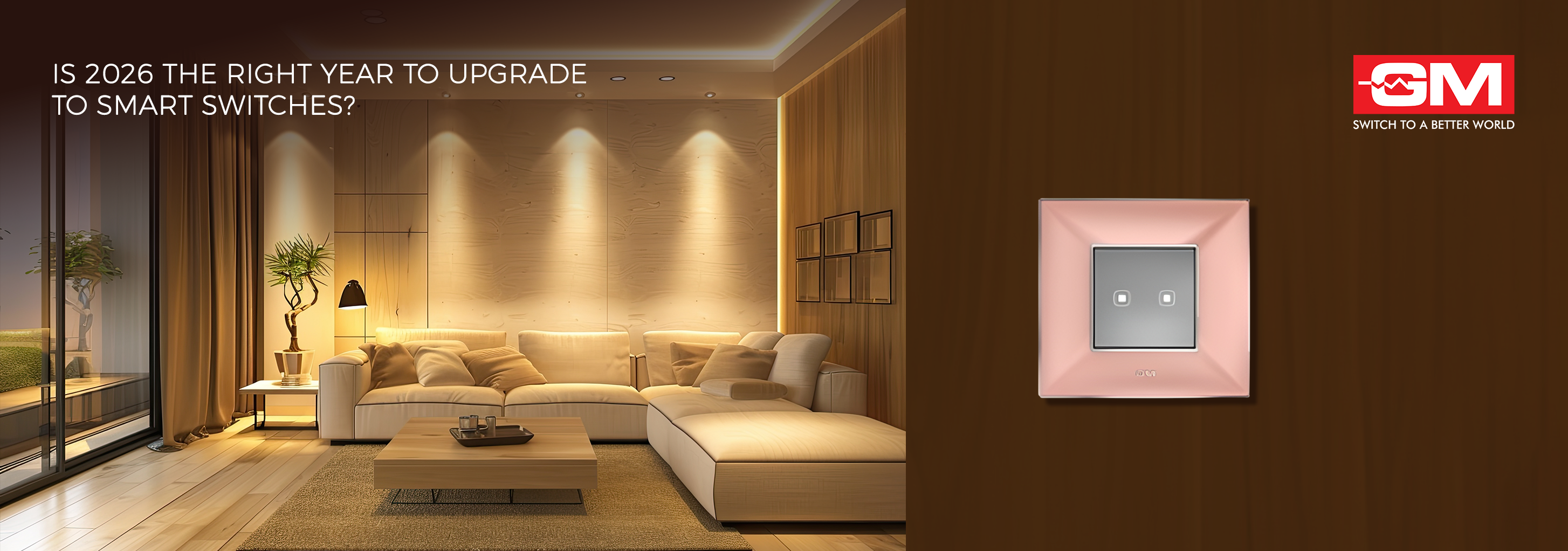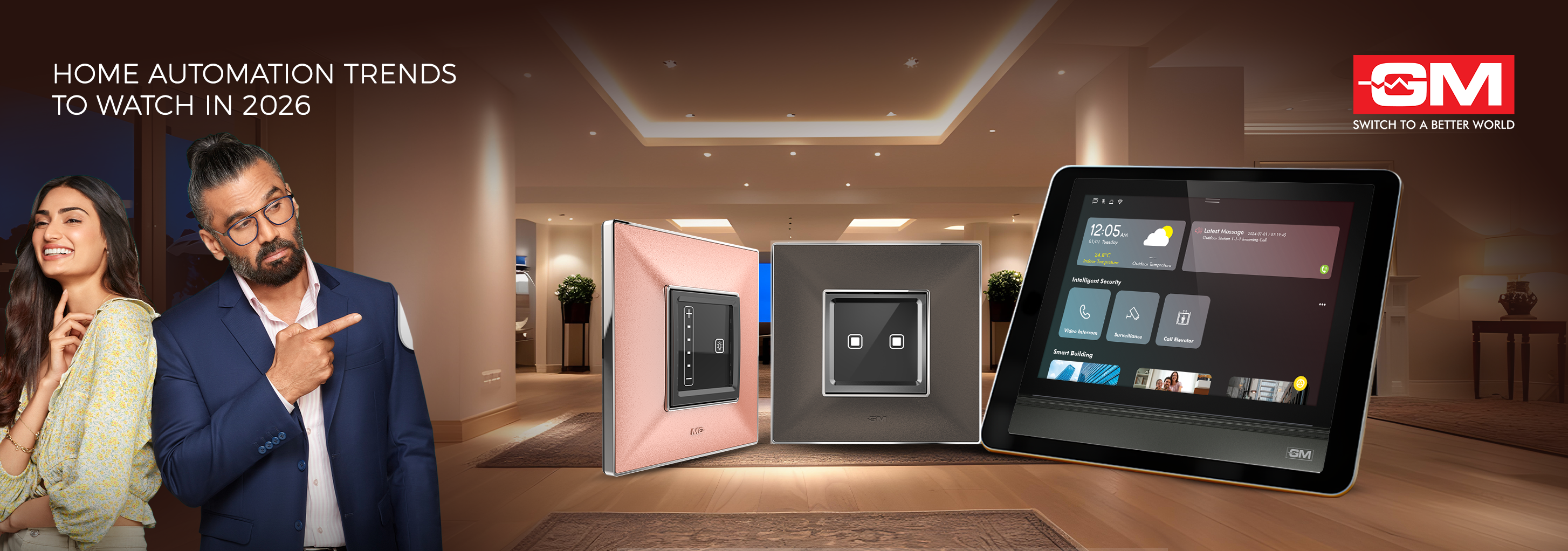Blog
Types of Electrical Distribution Boards & Their Uses Explained
Updated on May 2025

As the summer heat kicks in, the need for electrical appliances such as cooling fans for summer, air conditioners, refrigerators, etc., also surges remarkably. Upgrading your home with an efficient electric distribution board is necessary to effectively manage the increased load on the electrical system. In this detailed buyer guide, we will walk you through the types of distribution boards and their uses in managing the electrical power supply of your home. Understanding the types of electric distribution boards available at GM Modular will make a world of difference in how electricity is distributed across your residential or commercial space.
What is an Electric Distribution Board?
An electric distribution board is a central hub that receives the incoming supply from the power source and distributes it across multiple circuits throughout the residential or commercial space. It consists of various miniature circuit boards (MCB box) that safeguard against electrical short circuits and power overload. In a commercial setting, electrical cables branch out from the electric distribution board and connect to various electrical appliances. Different types of DB boxes maintain power regulation across various circuits and prevent any electrical power surges.
Types of Distribution Boards
Not all distribution boards are created equal. A 3 Phase distribution box is ideal for a vast scale industrial setting. Whereas for compact residential settings, a single phase electrical panel works well.
Main Distribution Board
The MDB is the primary focal point that distributes electrical power to sub-distribution boards. Among the types of electrical distribution boards, it is ideally used for larger commercial spaces where multiple sub-boards are required to handle the power supply or power overloading.
Sub-distribution Board
Among the types of DB boxes, the sub-distribution board draws power from the MDB box and distributes it to localised circuits in various localised areas. It can be tailored specifically to handle light electrical overloads. A sub-distribution board helps to organise, regulate, and control the power distribution with ease to localised areas in the home or commercial space.
Final Distribution Board
A final electric distribution board receives power from sub-distribution boards and distributes electricity to your home appliances. As the name suggests, these are the closest distribution boards to your home’s electrical devices. It consists of MCBs, fuses, and RCCBs that serve specific appliances with enhanced safety during human interaction.
Single-phase Distribution Board
Buyers find it among the most common types of MCB boxes used in residential settings. It is an ideal distribution board for places with lower power demands, usually for sending electrical power supply for smaller-sized home appliances. Even small businesses can employ the single phase distribution box for standard electrical load requirements.
3-Phase Distribution Box
Among the types of distribution boards, the 3 phase distribution box is engineered to handle greater power loads and is installed in places where there are heavy machinery appliances. It drastically reduces the chances of overload and improves electrical infrastructure stability. The 3-phase distribution box is highly recommended for spaces where maintaining a consistent power supply is crucial.
Lighting Distribution Board
A lighting distribution board controls and distributes power for lighting circuits within a residential building. It organises the wiring process and protects the light circuits from electrical faults.
Customised Distribution Board
In certain instances, certain distribution boards are customised to meet the specific needs of a particular business unit. A customised distribution board comprises special components to meet the unique needs of the electrical infrastructure.
Guidelines to Select the Right Electric Distribution Board
Selecting the right type of electrical distribution board is not just about measuring a few electrical metrics but also about safety and creating an efficient energy consumption system. Here are a few points to consider when looking for a distribution board.
- Electrical Load Requirements: Evaluate the number of electrical appliances you have in your household. Do you have multiple air conditioners or other high-voltage appliances? If yes, then choose types of DB boxes that can handle the desired load capacity as well as appear aesthetically pleasing to blend seamlessly with your home interiors.
- Plan for Future Uncertainty: Leave room for additional circuits for appliances whose needs might be highly uncertain.
- Consider Safety Features: Choose the types of distribution board that have high-quality MCBs and include surge protection. A DB box must adhere to the standard electrical protection policies to comply with safety rules.
- Long-term Durability: Selecting an electric distribution board from trusted brands like GM Modular ensures that they are built with the finest materials, making them ideal for long-term use.
Whether you are upgrading the electrical infrastructure of your home, commercial office, or industrial unit, choosing a well-selected electric distribution board is essential for the safety of your space. Exploring various types of distribution boards and identifying the one that aligns with your space is the first step to creating a safe, smart, and efficient electrical ecosystem. The various types of electrical distribution boards at GM Modular come at reasonable prices and offer a perfect blend of functionality, safety, and aesthetics.
Read our blog to know the key advantages of MCB distribution boards and why they’re a smart choice for every home.
Frequently Asked Questions
1. What is the difference between a 3-phase distribution board and a single-phase distribution board?
A 3-phase electric distribution board is a central hub for receiving and distributing electrical power across various circuits. It is typically designed for larger homes or commercial buildings and handles high-power load appliances. A single-phase distribution box is used in smaller spaces where the electric load is minimal.
2. Can I install any type of MCB Box by myself?
While the majority of the modern types of MCB boxes are user-friendly and safe, it is always recommended to get the help of a professional electrician to handle its installation.
3. What is the main purpose of the Electric Distribution Board?
An electric distribution board is an essential component to distribute electricity from the main power supply to various electrical circuits throughout the residential or commercial building. It regulates the flow of electricity and ensures the safety of appliances.
4. Where will I find the electrical distribution board in a building?
The placement of an electric distribution board differs from building to building for residential or commercial spaces, respectively. However, it is common to find them in metal boxes placed outside the residential home or in the meter room of a commercial space.
Related Blogs

Why Upgrading MCBs and RCCBs Is Essential in 2026
Picture this: you're hosting a family dinner, the air conditioner is running, the induction cooktop is on full blast, and someone plugs in the mixer grinder. Suddenly, everything goes dark. If this scenario feels familiar, your home's electrical prot
Read More
Why LED Lighting Will Be the Standard for Homes in 2026
Modern residential illumination in 2026 is defined by the strategic integration of LED strip lights. By providing a soft, indirect glow that avoids the harshness of traditional tubes, these solutions allow Indian homeowners to achieve a sophisticated
Read More
Is 2026 the Right Year to Upgrade to Smart Switches?
Picture this: you are already running late for work, and halfway to the office, a nagging thought strikes—did you turn off the bedroom AC? Now imagine resolving that worry with a single tap on your phone. This is not a distant dream anymore. Sm
Read More
Home Automation Trends to Watch in 2026
Imagine walking into your home after a long day. The lights adjust to your preferred evening setting, the fan speeds up to counter the summer heat, and your favourite playlist begins softly in the background. No buttons pressed, no commands spoken. T
Read More